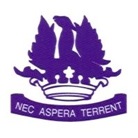A New School Year at.... Drayton Manor
Big plans for this W7 high school
It's the start of a new year and schools throughout Ealing are welcoming their new intakes.
In the first of a series of articles we will be finding out more about some of our local schools and asking the Headteachers about their plans for the future.
Drayton Manor High School
Type of School – Academy
Age Range – 11 to 19 years
Number of Pupils – 1579

Drayton Manor High School opened in November 1930 as a traditional grammar school but became a comprehensive after the Second World War.
The school has always retained an independent streak and recently become an academy school.
Sir Pritpal Singh is the long serving headteacher of Drayton Manor. He arrived at the school in 1994 and turned what was a low achieving school into a high achieving one.
The Ofsted report of 2002 declared the Drayton Manor as 'Outstanding.'
In 2004, the school’s achievements and the contribution of the staff and students to its reputation were recognised by the Teaching Awards Trust in awarding Head, Pritpal Singh, the Promethean Award for Headteacher of the Year in London.
Pritpal Singh became Sir Pritpal after he was knighted in the Queen's birthday list in June 2005.
1) What are your goals for this year as a school? Are there any reasons why this is a particularly significant year for Drayton Manor?
As you may have heard Drayton Manor became an academy at the start of August, so this academic year will hopefully give us the opportunity to explore our new found freedoms. The school has always been at the independent end of the spectrum, attaining grant maintained status in 1992 and becoming a foundation school in 1998; now we are taking yet another step away from the sort of stifling bureaucracy which schools can very easily become locked into. The transition to an academy will provide us with £400,000 more per year to spend on an even richer academic experience for the children. I see the academy scheme as an important way of emphasising the role of front-line services by handing greater autonomy to those who interact with the pupils on a day to day basis. However, while this may be a transitional year in some senses, our goal is unchanged: to maintain a high level of performance in every area.
2) Where would you like to see the school in five years time?
I would hope to see masses of continuity while making crucial changes where necessary. We had our eightieth anniversary last October and the ‘Drayton Manor way’ is very important to us. The emphasis will always be on providing an all round education, and that ethos will be in place at Drayton Manor whether five years down the line or twenty. I feel it is important that a school gives children access to things that they might not otherwise have had, from access to sports facilities to the opportunity to see other parts of the world on organised trips. I hope that we can maintain the confidence of local people and provide the type of constancy which is essential for a fruitful learning experience. The fact that I am only the fifth head teacher of Drayton Manor since 1930 shows that this is a school which values stability.
3) How much of a role does Drayton Manor have in the local community?
This community deserves a great school on its doorstep and I believe Drayton Manor gives people in the surrounding area a sense of pride. One of our missions is to ensure that our students are role models for teenagers and I have rarely felt let down. Members of the public often contact me to compliment the exemplary behaviour of our students on the bus. Most recently one of our teachers walked across the yard with a pile of books and was offered assistance seventeen times! I am confident that this mentality of doing good things with no expectation of reward will contribute to making our students ideal members of the community in the future. Drayton Manor is a calm, purposeful school where good manners are considered essential, and this winning combination of academic and moral education is part of the reason why former pupils send their children here and why such a high proportion (on average fifty percent) of Year 7 intake each year are siblings of pupils already at the school.
4) How does the school measure success?
First and foremost by the display of integrity by pupils. In life you will get nowhere if you are not able to engender trust in others. If there is one trait picked out by people about our students it is their genuine warmth, and a fundamental aspect of nurturing that positive energy is feeling secure in the school’s integrity. Of course we back up the less tangible attributes with rigorous scholastic discipline while accepting that different pathways suit different people. Provided a student feels they have challenged themselves enough then we as educators can feel content; we do not try and prejudge people’s destinies, only give them alternatives. During their time at Drayton Manor pupils will hopefully become more open to variety and be encouraged to aim high. Academic achievement will always be the basis for the cold, hard statistics, but there are many things you cannot measure. If the children feel warmth for the school then success in everything they set their mind to is more likely to follow.
If you could sum up Drayton Manor in three words, what would they be?
Best possible education
15th September 2011
Related links
|
